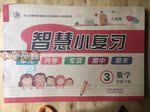题目内容
It is uncertain _______ side effect the medicine will bring about,although about two thousand patients have taken it.
A. that B. what C. how D. whether
练习册系列答案
 智慧小复习系列答案
智慧小复习系列答案
相关题目
题目内容
It is uncertain _______ side effect the medicine will bring about,although about two thousand patients have taken it.
A. that B. what C. how D. whether
 智慧小复习系列答案
智慧小复习系列答案